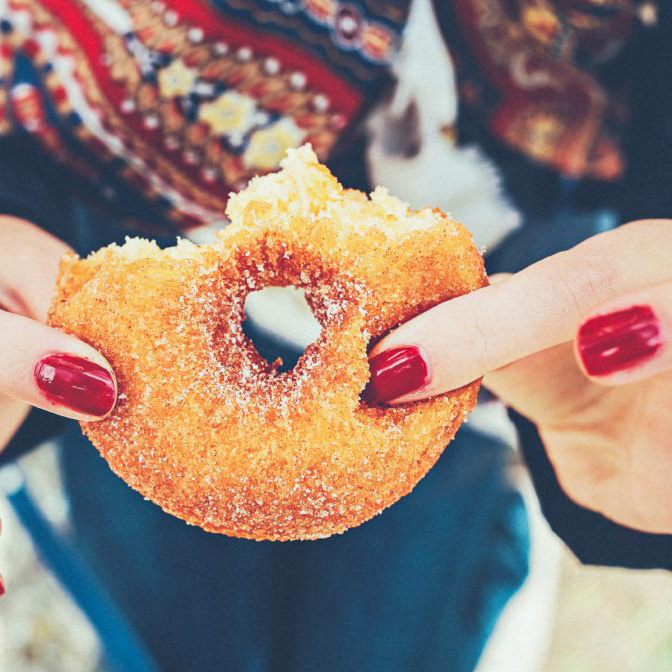
Stress tends to mess with our eating habits. In times of stress, some people eat more, while others eat less. The type of food people eat also changes: compared to non-stressed individuals, stressed individuals more often eat unhealthy foods.
Laboratory experiments have shown that stress causes people to make unhealthier food choices. In a typical experiment, participants are exposed to an acute stressor, for instance, they are asked to present themselves before strangers, or to solve a very difficult puzzle within an unrealistically short timeframe. Unknown to the participants, the most important part of the experiment takes place during the breaks, when they are offered food and drinks. Secretly, the researchers observe exactly what the participants eat and drink. They look for differences between those who were exposed to stress prior to the break, and those who were not. And indeed, researchers do typically find differences between these groups. For instance, women who were most sensitive to stress (as shown by an exaggerated cortisol response), also ate more calories in response to stress [1]. In a second experiment, participants who had just performed several difficult tasks in front of a judge, especially those who reported being subjected to chronic stress in daily life, ate more chocolate cake and fewer vegetables compared to non-stressed participants [2].
But how do such laboratory experiments relate to real-life? After all, for most of us, giving presentations is not the most influential stressor in our lives, and real-life situations are much more complex. To investigate how real-life stressors affect food choices, one needs so-called epidemiological studies. In such studies, large groups of people are followed over longer periods of time. At multiple time points, they are asked about their stress levels (including daily hassles, work-related stress, academic stress, etc.) as well as about their eating habits. Consistent with experimental studies, epidemiological studies have shown that, on average, diet quality is lower in people who report more stress (e.g. [3] [4]). However, the effects reported in real-life studies are much smaller compared to the effects reported in the lab: in real life, stress is only one among many factors influencing your food choices.
So exactly how big is the effect of real-life stress on our real-life food choices? We investigated this in over a hundred thousand people from the North of the Netherlands. We found that exposure to stressful life events, such as the loss of a family member or being the victim of a crime, was associated with poorer diet quality; however, the effects of stress were relatively small. For instance: on average, most people reported having dealt with one stressful life event in the past year, and their average diet quality score (on a scale of 0-48) was 23.9 points. People who reported dealing with two instead of one stressful event had an average diet quality of 23.8 points. For comparison, the difference in diet quality between the average man (22.5 points) and the average woman (24.9 points) in our study was 27 times bigger [unpublished data].
To summarize, diet quality deteriorates in times of stress. However, in real-life situations, with a multitude of other factors determining what, where and when we eat, the effect of stress alone is very small.
